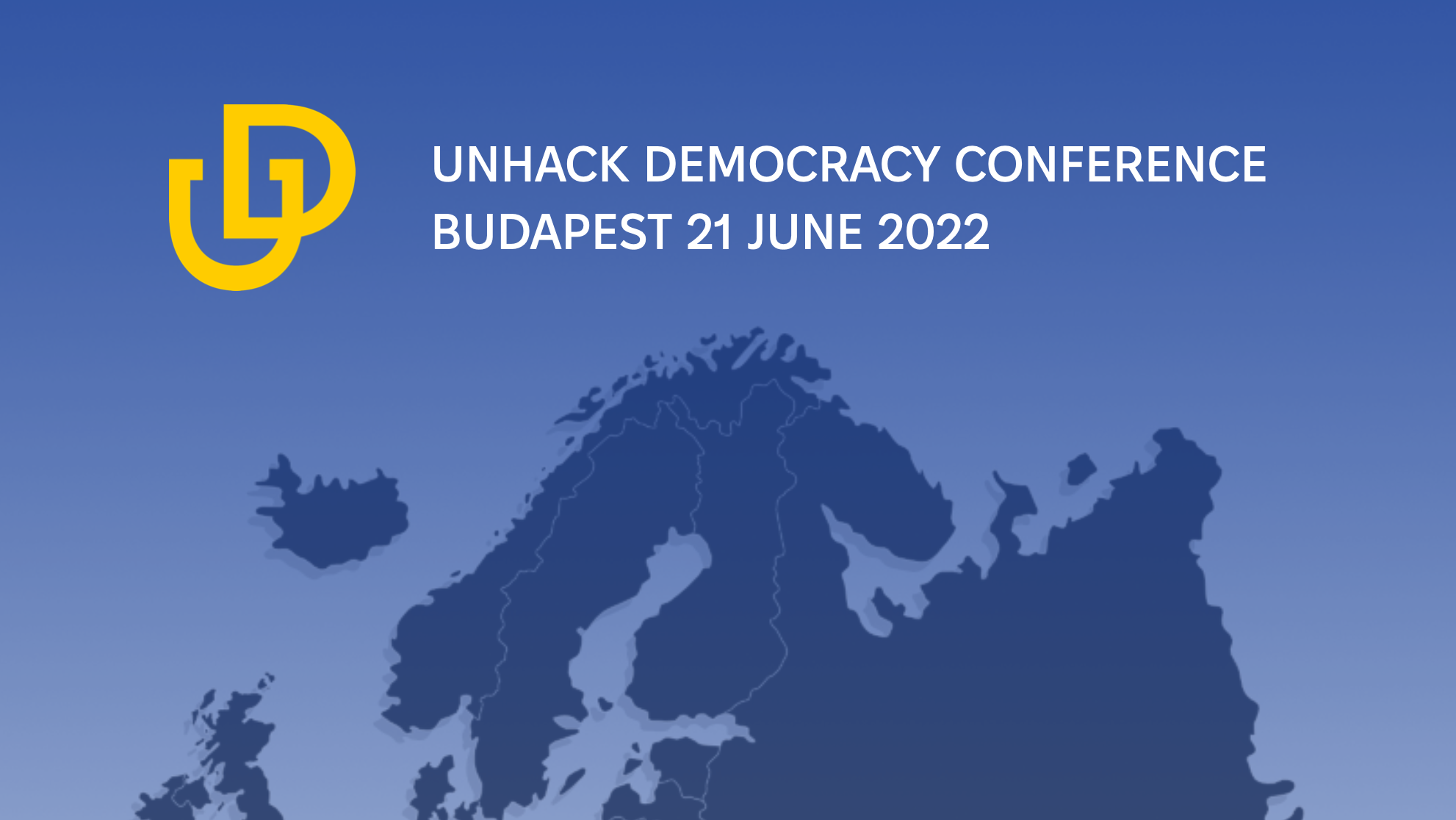
(The full conference livestream is available here)
Over the course of two days representatives of pro-democracy groups from over 20 countries across central and eastern Europe, the Black Sea region, Balkans, Belarus and Russia joined activists, journalists, academics, politicians, diplomats and policy makers to discuss the most pressing problems and potential solutions to counter democratic rollback and safeguard electoral integrity.
Bringing in the key takeaways and crossovers from the closed-door workshops, the following report is an overview of the main conclusions and recommendations from each thematic session. Together they set out the challenges and opportunities for civil society in today’s democratic space.
DEMOCRACY AS SECURITY: ‘Democracy is something that did not exist in Russia, but also why Ukrainians can influence their government and president. I believe that free and fair elections are part of national security. And I believe that we have to think about that on a global level, not just about procedures and processes and not just about disinformation or cybersecurity, because it is all a puzzle that fits into one big picture. Electoral democracy and free and fair elections are about security.’
AUTHORITARIAN MODEL: ‘If we don’t continue to fight on a global level for Ukraine to survive as an electoral democracy, in the end this battle will be the best example for authoritarian and totalitarian regimes in other continents or other potential regimes in Europe that democratic takeover is possible. Just to destroy everything because you have more weapons. I am going to ask you don’t be tired of fighting for electoral democracy and don’t be tired to keep watching what is going on in Ukraine.’
CONCLUSIONS
Freedom House Nations in Transit
DOMINANT FORM: Hybrid-regimes are the predominant form of governance in the region. At the start of the democratic decline 18 years ago there were only 4 of 29 countries that we identified as hybrid-regimes, now there are 11. The number has tripled in less than two decades.
EXITING THE GREYZONE: It is increasingly difficult to exit the greyzone and there has been no country that managed to graduate to a democracy from the hybrid regime. However, those that moved away from full autocracies have not fallen back. There are 2 directions these countries are heading: i. autocracy ii. stagnating as hybrid regimes.
CHARACTERISTICS: Hybrid regimes, where democratic institutions are present but are marred by authoritarian practices: I/ Obsessed with centralisation, tilting the level of playing field and clientelistic structures. II/ Private property is not protected anymore. The independent media is captured. III/ Dividing society into homogenous groups.
QUESTIONS REMAIN: How do you manage to clean the system if you are able to get rid of the ruling regime? What do you do with the deep state or the privatisation of state architecture?
EU COMMISSION: Hybrid-regimes are destroying the EU, undermining trust in institutions. Problem is that the EU does not use existing toolkits and does not stop unconditional funding, when it could. The EU Commission enters into dirty compromises.
ELECTIONS: Election campaigns (tilting the level of playing field) start the day after the elections. LOSERS IN HYBRID REGIMES: Environmentalists and the poor. (People in pressure groups that worked together have managed to get their voices heard.)
<a href="https://thwthr.com/ use of cameras in polling stations to hack video and develop an IT tool to check voter turnout done automatically).
CONCLUSIONS
MEASURING ATTRACTIVENESS: Need to promote an attractive system rather than an attractive candidate requires a much broader understanding about democracy than just elections. Studies show a majority of people in Europe want democracy and that it is an attractive proposition, which is a good starting point for any endeavor that is meant to strengthen democratic standards day by day in ordinary people’s minds. How can we make it attractive enough every single day?
ABSTRACTION OF ‘DEMOCRACY’: Democracy is about communication but people’s understanding of democracy varies. Need to move from hyper-professional knowledge and language and speak to people in a way they understand, explaining how and why democracy is important to them. Look beyond just the ‘democracy’ sector (elections, voting etc) to make it relevant to people on both a macro level and in relation to their daily lives. Boost civic engagement by building cross-sector networks (such as collaboration between ecoaction and workers rights groups in Russia). Stress the link between democratic roll-back and impact on the every-day lives of citizens (“autocracies kill the environment as well as people as the war in Ukraine is financed by fossil fuels directly”). What is the business model of democracy and the market distortion when you don’t call it a democracy?
ONLINE VS OFFLINE: People retreat to their social media echo chamber because the current set up of politics is not able to accommodate effective decision making. Need to find a balance between online and offline interaction. Technology can be a force for good but also need to be aware of bad actors’ ability to weaponise it. In-person interaction is an important element of building trust – but beware gerontocracy in democracy – nostalgia for politics of the past.
LOCUS OF DEMOCRACY: Information overload around multitude of issues has widened the cleavages in society. Hard to have civil discussion when the idea of ‘facts’ themselves are in question. There is a crisis of trust; in institutions, in interactions and in truth itself. Trust must start at a base level, with neighbours and localism. Importance of a highly functioning civil society built on the interest of people to engage to build back the DNA of democratic participation.
Subscribe to our
newsletter
Sign up for our monthly newsletter
and receive the latest EPDE news
Subscribe to our
newsletter
Sign up for our monthly newsletter and receive the latest EPDE news